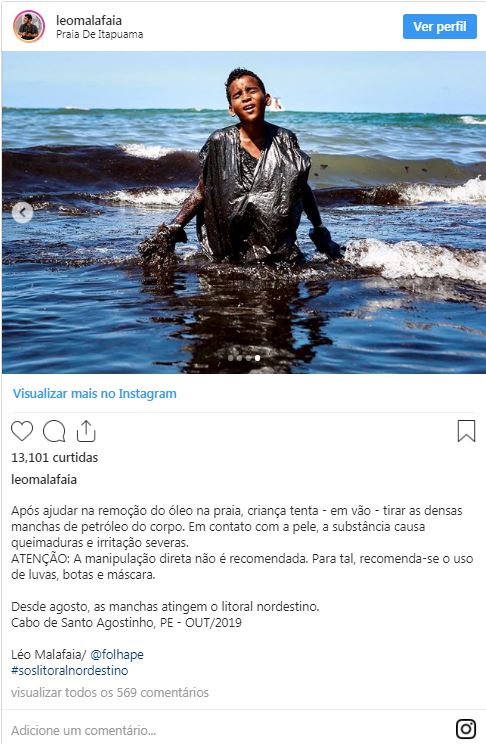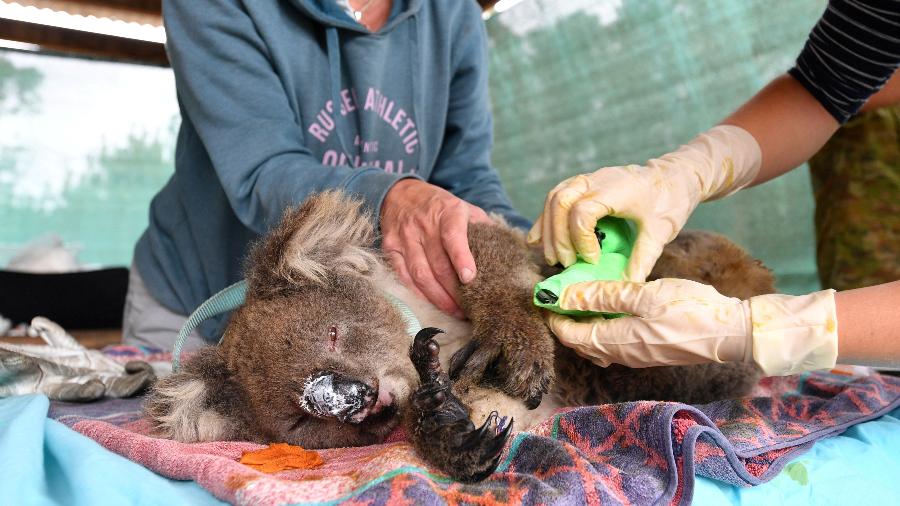Fires in Australia and the Amazon, flooding in Venice, disruption of ore dams and oil spill on the beaches of northeastern Brazil. In 2019 there were several environmental disasters around the world, leaving both authorities and civil society on alert for the effects of these events on fauna, flora and future generations.
For this reason people of all ages, including children, volunteered to try to mitigate the impacts of each of these incidents. However, many did not care about health risks, neglecting the use of Personal Protective Equipment (PPE’s).
In the situation of the oil spill in the Northeast region, for example, several volunteers showed symptoms of contamination after helping to clean the affected beaches. Many of them have taken no protective measures to avoid contact with crude oil. Even the photo of a 13-year-old boy covered in oil while trying to help on a beach in Pernambuco was one of the most shocking images of the occasion, and rode the world lighting the alert to the dangers to which volunteers were exposed.
Photographer posted on his social networks image of 13-year-old boy covered in oil while helping clean the beaches.
Oil is listed by the National Cancer Institute as a highly dangerous substance, and can cause various types of allergies, skin infections, contact dermatitis, difficulty breathing by inhaling gases generated by the substance, vomiting, and even cancer.The use of PPE is essential as it prevents volunteers from becoming ill after exposure to chemical and biological substances where they are providing assistance. Some of the main equipment are masks, plastic boots or waterproof material, pants, long-sleeved shirts, and gloves.
In circumstances such as that occurred on Brazilian beaches, the most indicated gloves are PVC, or Nitrilic, which offer resistance to oil and other chemicals, such as chlorinated solvents, alcohols, different types of oils and even some acids, ensuring more protection to the volunteer's health. Natural latex gloves, such as surgical gloves, are not recommended in such cases. They have low resistance to heat and substances such as petroleum, and may cause or aggravate skin irritations after use for contact with this material.
In cases of rescue of injured animals or human victims in other types of disasters, latex gloves can be used avoiding contact with body fluids such as blood, saliva and secretions.
Volunteers treat koala rescued from fire in Australia. Photo: Reproduction/Internet
In cases such as floods and flooding, very common in several cities in Brazil, for example, gloves and other PPE help to avoid contact with contaminants when cleaning affected sites, avoiding the risk of volunteer acquiring diseases such as leptospirosis.
Remember: never try to help yourself and without the support and follow-up of the responsible bodies. Join groups of volunteers already established and organized by NGOs and public agencies. They will be prepared for the situation and will be able to guide you appropriately to prevent you from taking risks during actions.



